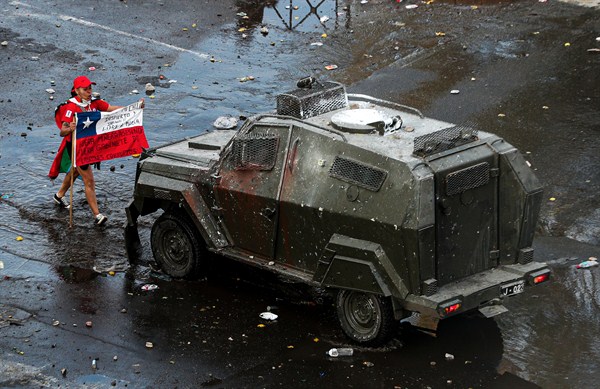Until just a few days ago, Chile probably looked to most people like the most stable country in Latin America, and the least likely to erupt in massive social unrest. Few if any countries in the region have experienced decades of economic growth and an expansion of the middle class, alongside reliably fair and competitive elections. And yet last week, the streets of Santiago became the scene of violent clashes between thousands of protesters and security forces, leaving more than a dozen people dead and hundreds arrested. In response, President Sebastian Pinera deployed the military, imposed curfews and announced a state of emergency, declaring, “We are at war.”
The sudden, ferocious eruption of discontent caught just about everyone at home and abroad by surprise. If it can happen there, some observers noted, it can happen anywhere.
It all started after the government announced an increase in subway fares, raising prices by about 4 percent. The fare hike sparked a student protest calling on riders to stop paying. That call gradually caught on, leading to fare-jumping mobs and, by the end of last week, largely peaceful protests had given way to full-blown riots. Protesters barricaded entrances to subway stations and set many of them on fire. They threw rocks at police, torched buses and cars, and set the high-rise headquarters of national energy company Enel Chile in downtown Santiago ablaze. The police first responded with water cannons before Pinera, who then revoked the fare hike, handed security responsibility to the military.

